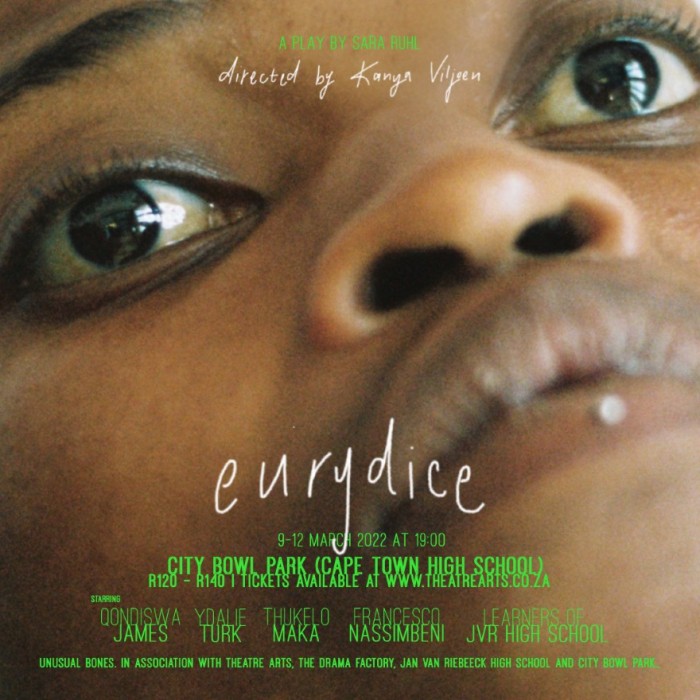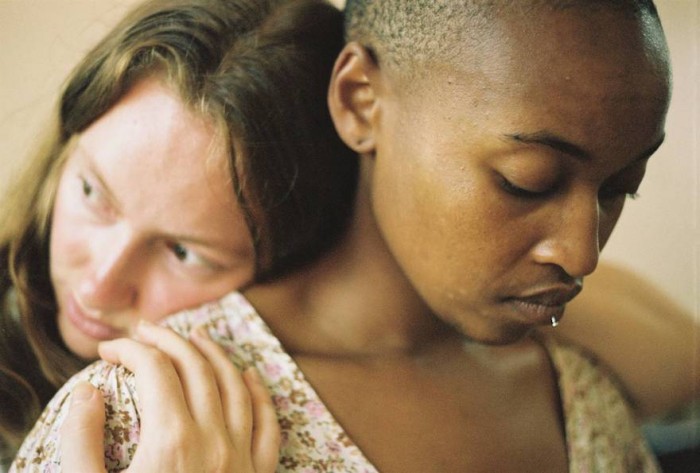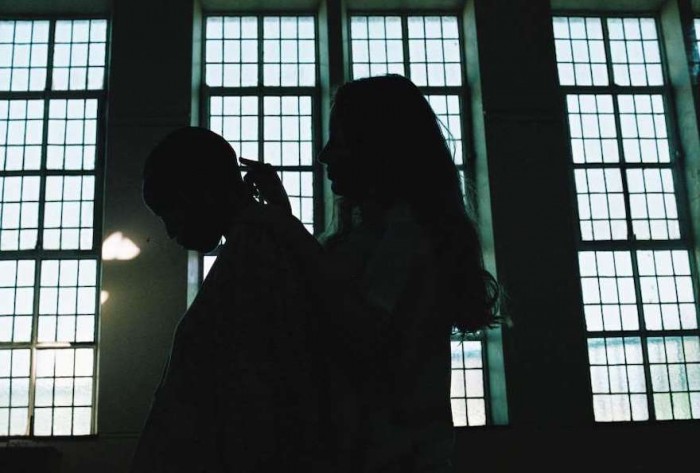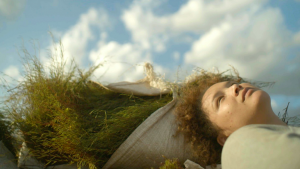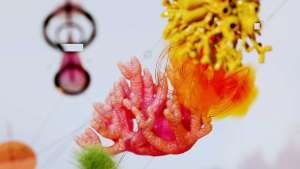“I remember reading Eurydice, Sarah Ruhl’s internationally acclaimed play, for the first time and being drawn to the world she had created – the bizarre, heart-breaking, strikingly familiar experience of womanhood and femininity,” recalls Kanya Viljoen. The award-winning writer, director and performer brought Ruhl’s Eurydice to Cape Town audiences from 8 to 12 March 2022. It was staged by Unusual Bones in the City Bowl Parks, Cape Town High School.
“Over the past two years, I then found myself coming back to the text – dreaming of pools, vast empty spaces, and people waiting for each other. As Covid-19 restrictions started to shift, the opportunity of staging Eurydice within the South African context presented itself.”
The myth of Orpheus and Eurydice is centred around love, death, fleeting moments of happiness, and the way in which we experience all these. Yet in Ruhl’s text, the myth is turned on its head as the audience follows Eurydice, played here by award-winning performer Qondiswa James, through the underworld. Here, she learns to remember herself, her father, and what it means to live and die.
“For a South African audience, these themes – specifically when translated into local ways of speaking – Afrikaaps, Afrikaans and IsiXhosa – seek to challenge how South Africans remember and forget, how we recall and lose, and how we move through space,” Viljoen muses. “It questions how we mourn, how we engage with one another, and how we create worlds for ourselves, so as to understand ourselves andeach other.”
Of course, the use of various languages creates a sense of the power dynamics inherent in our local context. The multicultural piece achieves a dialogue around youth and how we fall in love with each other. It reconstructs how we might love, lose, remember, and reminisce.
“It’s been interesting finding how the isiXhosa and Afrikaans move through the English of this text,” comments James, “and how the poetics become layered in new and complex ways to guide us to richer meaning or feeling. This iteration [of the play] seems to deepen the poetics of forgetfulness, and how it asks questions about collective memory in a context of a disparate and segregated country, and world.”
The clever choice of staging the play in an abandoned swimming pool emerged, says Viljoen, from Ruhl’s imagery in which Eurydice is moving through a river of forgetfulness.
“With the recent drought in Cape Town and the ecological awareness surrounding water scarcity, the image of a pool that has forgotten it once had water in it became not only a powerful concept to work with, but created a space around remembering, reimaging and recollecting – in which the actors’ performances are staged against open elements.”
The text, with its images of water, music and objects, kept offering up imagery that demanded to be staged, says James. “I’ve always wanted to live in Eurydice’s world, one in which she becomes herself, more than an object for Orpheus’ story in the original myth, as we investigate her hopes and dreams,” James continues. “There’s a great deal of feminist work being done here – to decentralise the man’s story, and instead to find and give space for femme narratives, to grant ourselves full lives in colour.”
The beauty of this theatrical work is that, in production, it focused strongly on which characters would speak to whom in which language, and in which world – so that it continues to ring true in the South African context while honouring Ruhl’s original text.
But it also greatly expands a conservative audience’s horizons by exploring a love between two women, in a graffiti-lined space devoured by plastic. The inherent ecological commentary, so concerning and familiar to us all, is presented through a reimagining of the ancient myth in which feminine logic rises up. There is no lack of depth to unpack in this insightful work.
Read more:
Metaverse multiples.
Paying homage to the matriarchy.
Unusual Bones

